Just because the phone isn’t ringing every 15 minutes doesn’t mean that your SEO isn’t working. The leads might just be around the corner.
This article will go over how to know whether or not your SEO is working (primarily local SEO; that’s our cup of tea here at Krstic SEO, but the concepts are applicable to all industries).
We will try to shatter some fake beliefs and re-establish new ones, which are much mentally healthier for both the client paying for an SEO service and the agency doing it.
You will also learn where your money is going and whether or not your agency is actually doing any work. If they’re not, your boy Bogdan and the crew are here for you to take all of your cookies instead.
Let’s go!

~5 Minute Read
Quick Answer
If you're not yet seeing leads coming in but are seeing other metrics, primarily traffic and organic keywords, growing MoM, this is a clear indicator that yes, your SEO is working; it's just not resulting in leads yet, which could happen for a few reasons, mostly bad CRO or wrong keyword selection.
The Bottom Line - Is My SEO Working NOW?
Like, right now!
Depends on how long you’ve been doing it (or your agency has been doing it for you).
But here are a few things you could check right now on your own (unless you don’t have a password; we can’t write a guide on how to get that though, sorry).
Lead Generation
The thing is, you likely wouldn’t be reading this post if you were getting leads.
But let’s play the devil’s advocate; sometimes some dumb technical issues or wrong tracking might lead you to the conclusion that your SEO isn’t resulting in leads.
You might be getting traffic (which you’ll see in just a bit how to check for), but:
- The lead submission form on your website isn’t working (like the ones we’ve got on our free SEO audit and contact us pages); can’t believe how common this is
- You either have no call tracking or the one you have isn’t set up properly
- Your checkout is flaw (for eCommerce websites)
These are just pure technical issues, and then there are the ones like bad conversion rate optimization or the wrong types of keywords you’re targeting. We’ll get to these later.
Organic Keywords Growth
If you’re shown for more and more searches consistently on Google, your SEO is working. Here’s how to check that (two ways):
Google Search Console
Google Search Console can be a bit tricky to navigate for people who have no clue about SEO, but it only takes a few clicks to check what’s going on.
Go to this link and find your website.
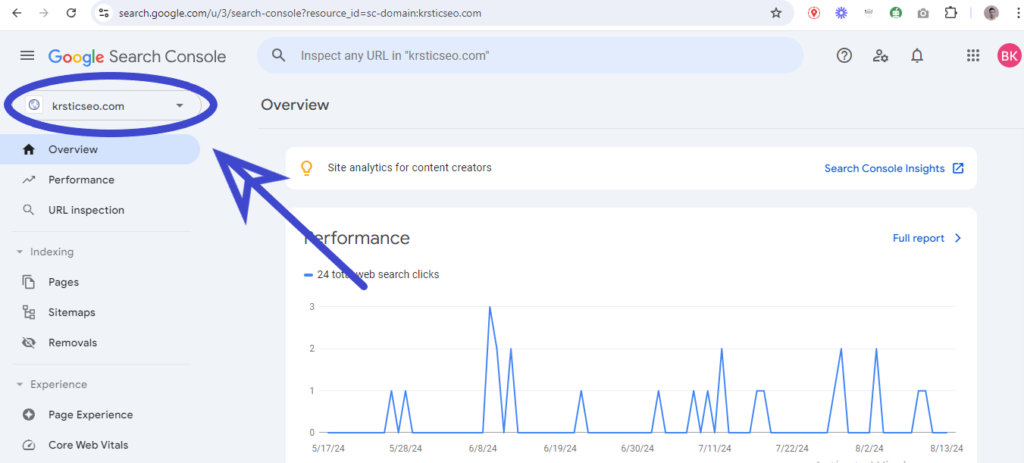
Click “Performance” and select “Average position.”

Boom! Now you’re looking at possibly the biggest indicator of whether or not your SEO is working (besides the leads themselves).
The “Total clicks” graph displays all the clicks you got solely from Google Search. If there are clicks coming in, your SEO is working.
But Bogdan, your own SEO sucks, how could you possibly be teaching me anything?
Well, my friend, at the very moment of writing this and taking these screenshots, yes, my SEO results sucks, but I know my SEO is working, and here’s how:
- My high-value keywords consistently rank higher every month, which you can check for yourself by simply clicking on any of the keywords displayed under the graph you see in the image above.
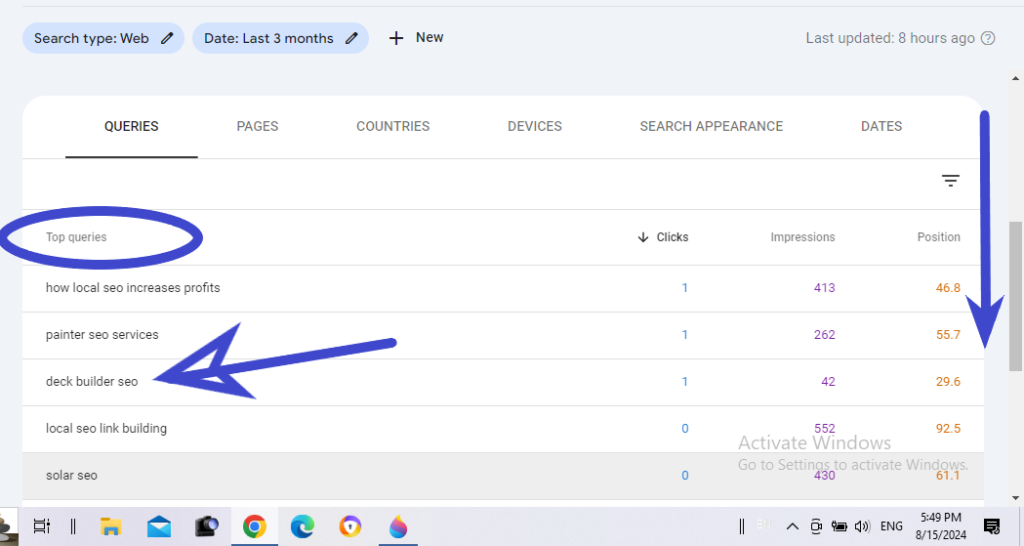
Examples:
- “Deck builder SEO” keyword has grown from position 63 to 8 in just under two months.
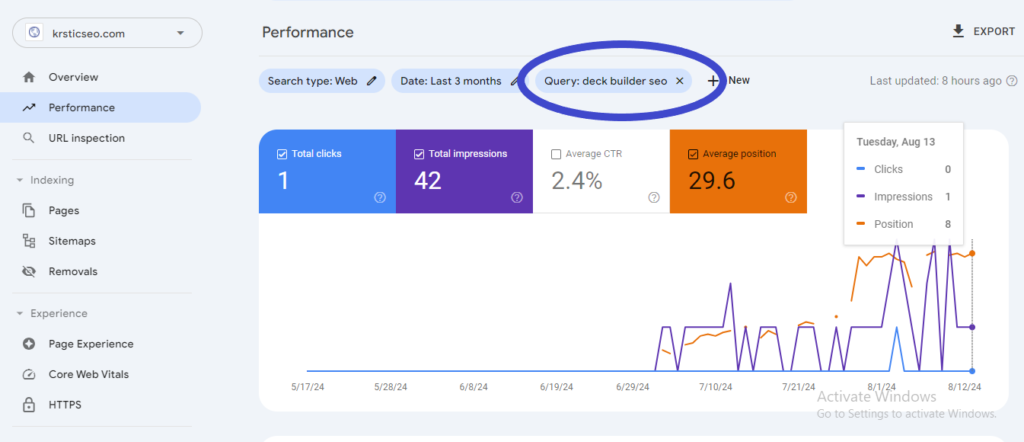
- “Nationwide SEO service” keyword has grown from position 101 to position 26 in two months.
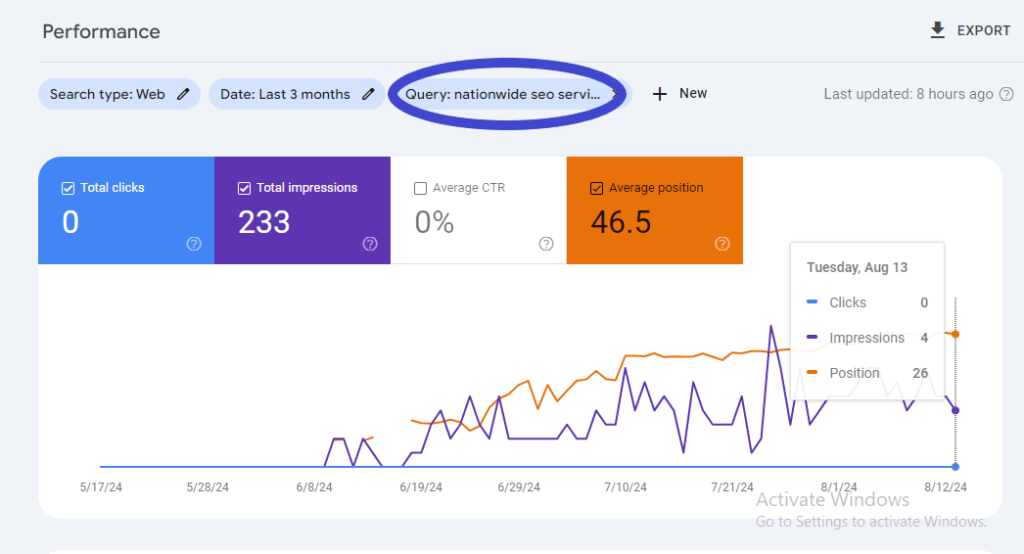
And there you go. Check a few of these for yourself and if you consistently see the orange graph going up (disregard small drops; those are normal; the big picture matters), your SEO is working.
Another Google Search Console thing you can look at to check if your SEO is working is the “Compare” section.
Click on the “Date” section you see in the image below.
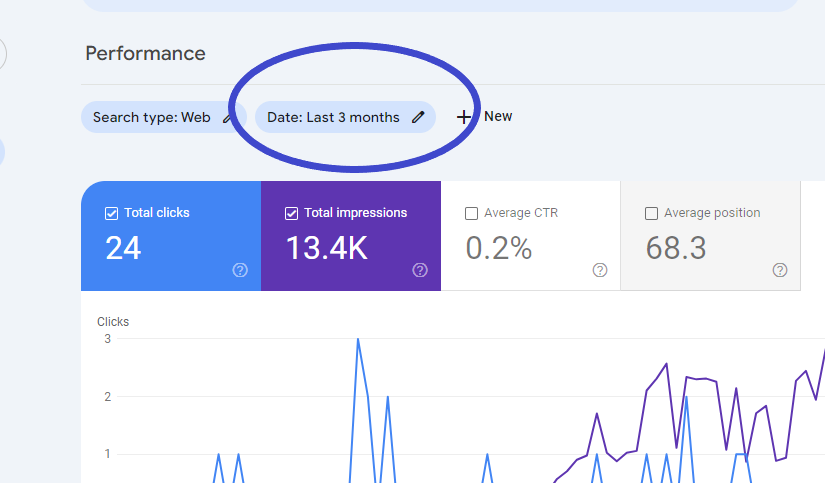
Click on “Compare.”

And now compare. Look to see if you’re getting more clicks than the previous period. As you can see in our case, it’s all better than zero, so we’re good to go.
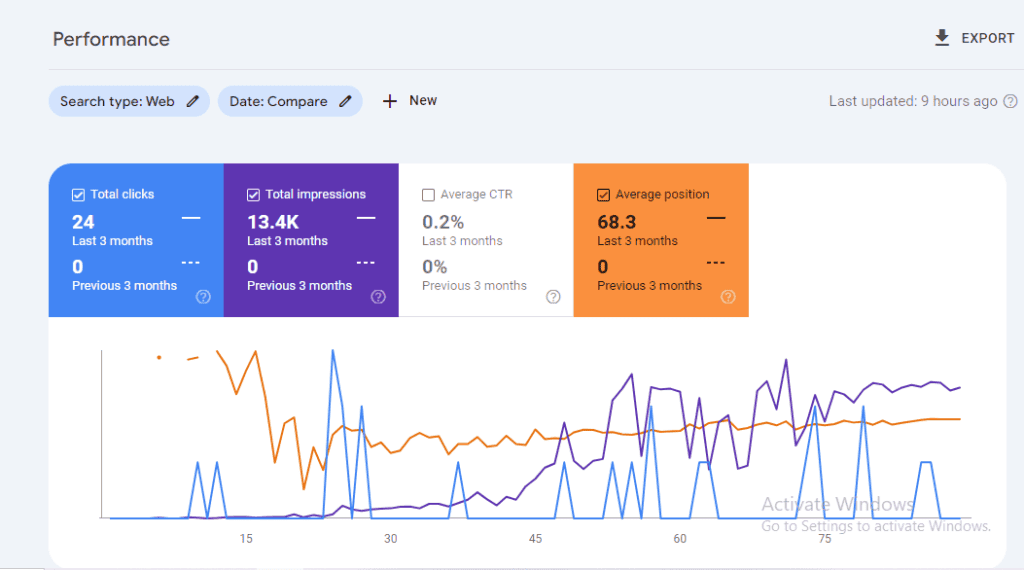
SEO Tools
Log into your Ahrefs or SEMRush account where you track traffic (or your agency does); if you don’t have access to your SEO tracking from your agency, simply ask for it and they should walk you through it with no issues.
If you see your organic traffic growing (or, at least, the number of your keywords growing), then you’re on the right track:
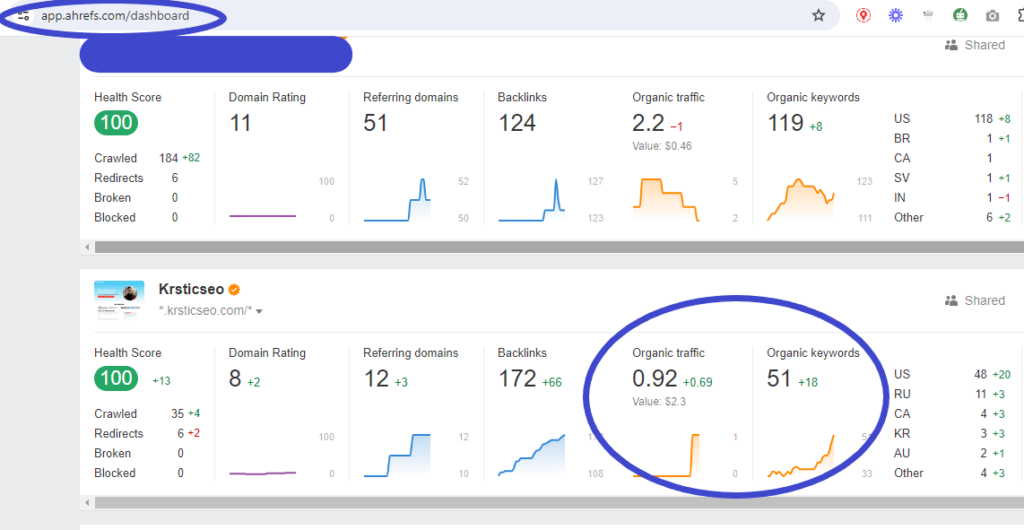
Your Google Business Profile's Growth
How do you measure this?
There are, again, two direct ways:
Google Business Profile > Performance > Searches
Go to this link to find your Google Business Profile and navigate to the “Performance” section. You should see more new searches each month and more of the old searches also reoccurring.
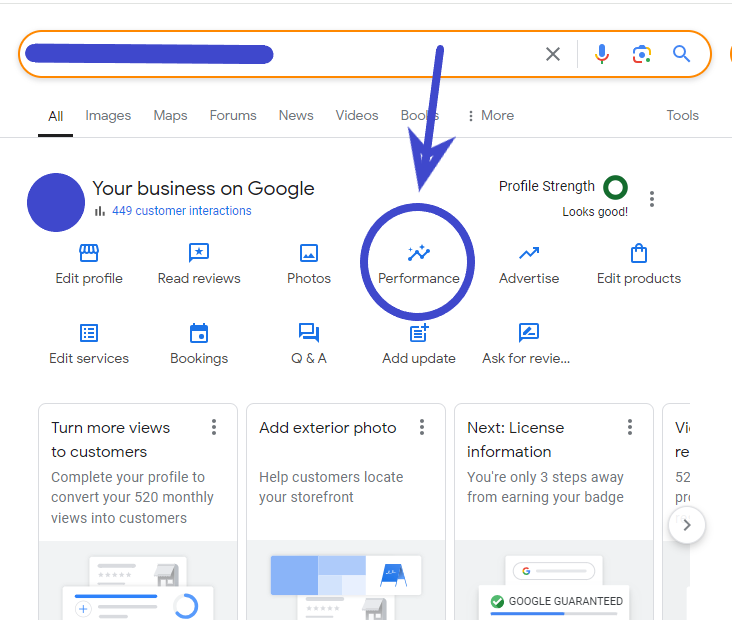
Scroll below.
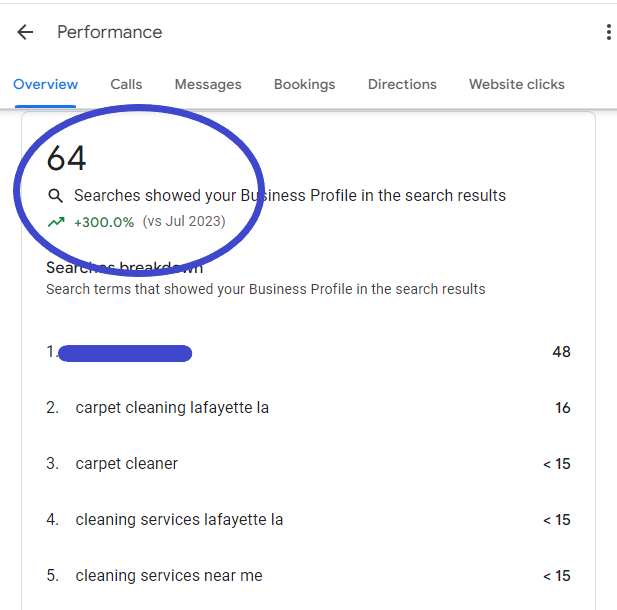
Your Google Business Profile's Radius Growth
Inside a tool like Local Falcon, you can run a scan of how big your “radius” is (which simply means how high your Google Business Profile ranks further away from your address).
If this sounds confusing, check out our guide on how to rank higher on Google Maps and find the “Distance/Proximity” section.
Run a “Quick Scan” now for a high-value keyword you’d like to rank for.
Look up a radius of anywhere between 4 and 10 miles.
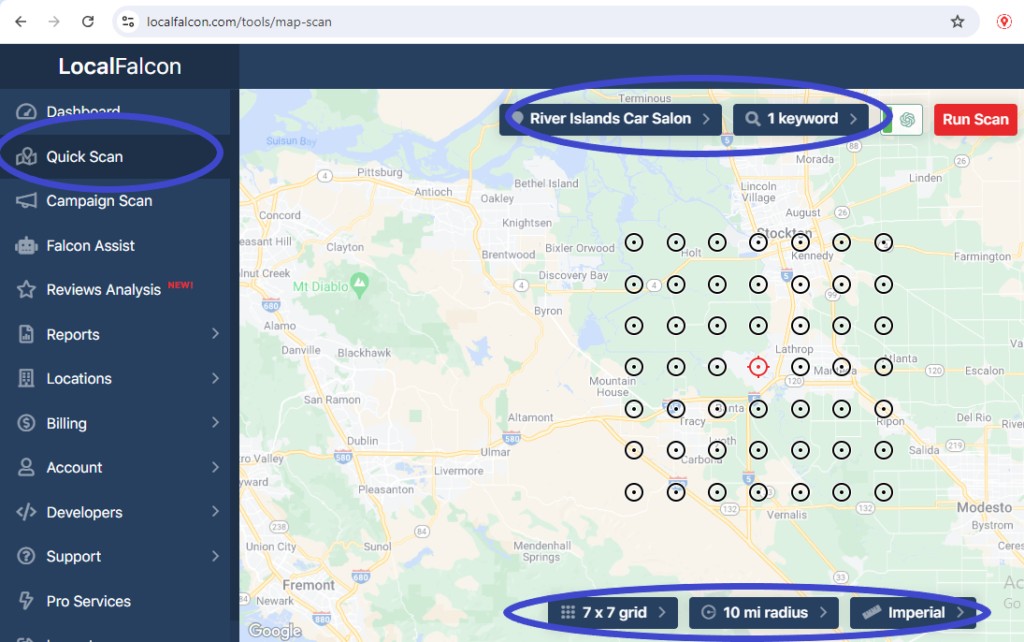
And then run the same scan again, about two weeks to a month later. Inside “Trend Reports,” you can then check your progress.
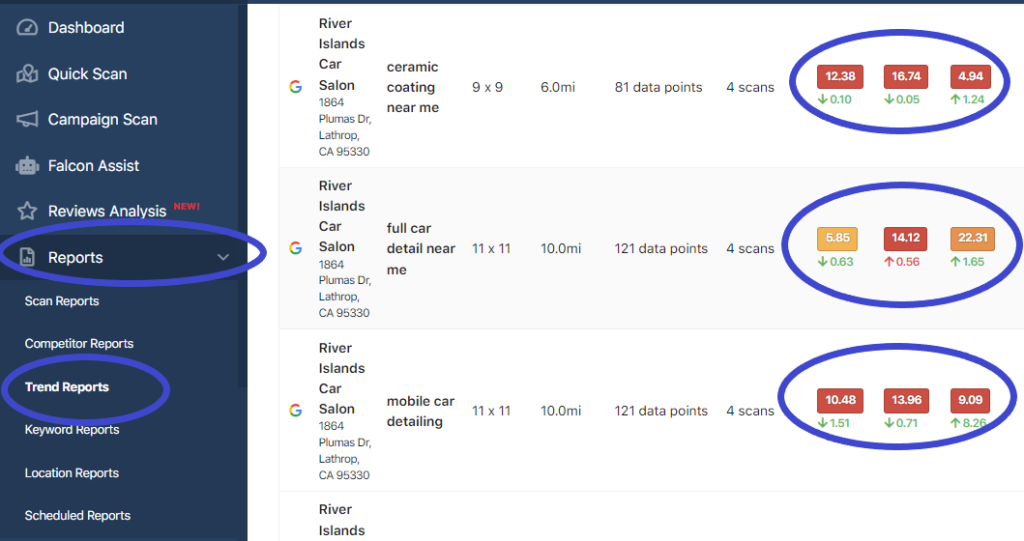
Now, what do these circle numbers mean?
The one that matters is all the way to the right; that number is called “SOLV,” which, in layman’s terms, means market share.
SOLV increasing means that your Google Business Profile is growing in its reach and prominence, and that more people are seeing it.
Once you open up a scan, you’ll be able to download a trend report GIF like this one:
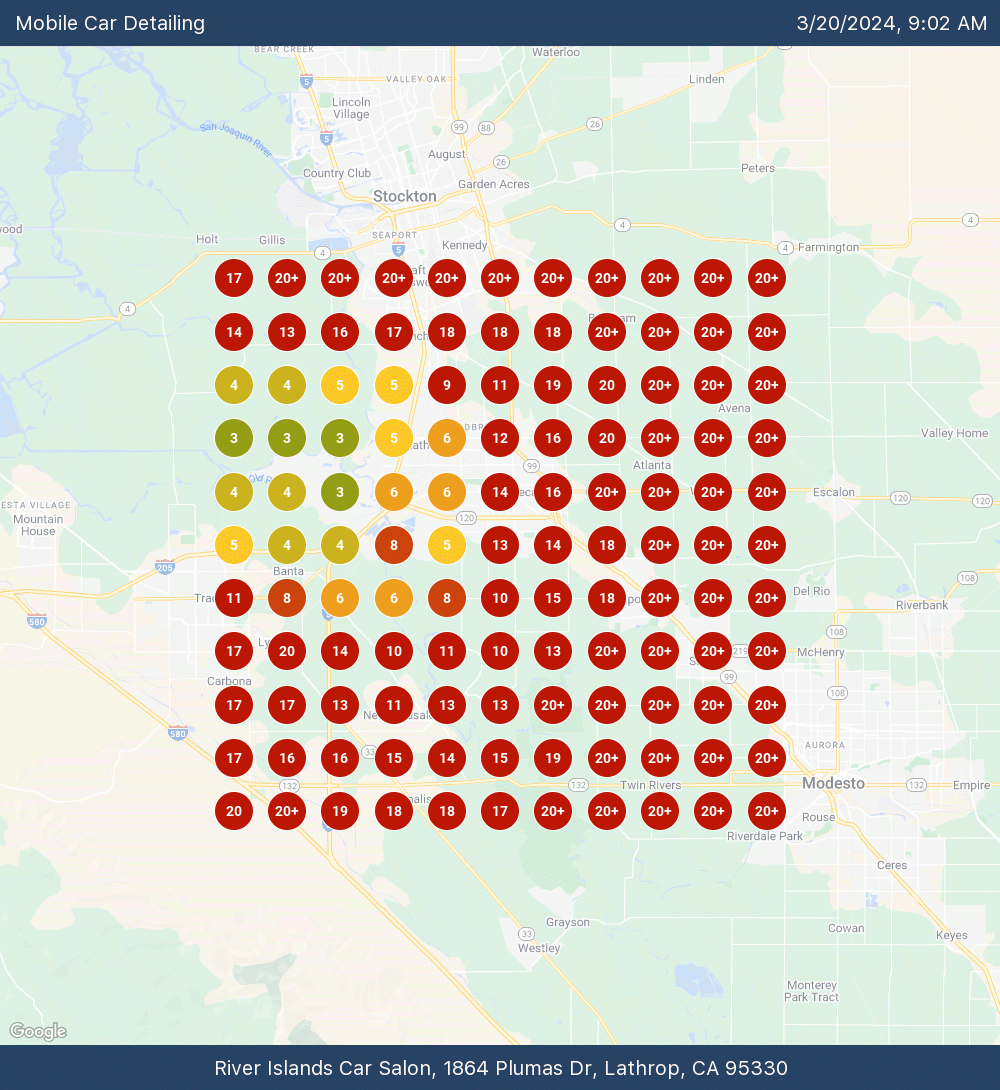
If you’re seeing more green spots than red over time, that’s an indicator of growth, which should directly lead to more engagement and calls from your Google Business Profile.
NOTE: Local Falcon’s results can go up and down, so make sure to give it some time before you come to the conclusion that your SEO isn’t working.
Wait, I'm Getting Traffic; Where Are The Leads?
This now brings us to the point I addressed earlier.
Wrong Keyword Selection
In our guide on how to perform keyword research for local SEO, we examined a few different keyword types:
- Informational
- Commercial
- Navigational
- Transactional
Commercial keywords are your money makers; think of “roofers near me,” “water damage restoration service near me,” and “solar energy company near me.”
People searching for these have the intent of hiring a roofer, a water damage company, or a solar installer.
But what many SEO agencies do is try to rank you for informational keywords over commercial ones. Informational keywords would be “what type of roofing is the best,” “is water damage dangerous,” and “average timeline of solar ROI.”
And while these are valuable because you’re educating your prospects on the value of your products and services, there are some flaws to relying on this strategy ONLY:
- You’re essentially targeting everyone, not just your local market, which makes no sense unless you’re targeting local informational keywords, of which there aren’t many (although it depends on the industry).
- If you’re funneling strategy is bad, the user will just read the article (if you even manage to rank it above other established blogs) and click away.
- These usually won’t convert nearly as many leads for your business as commercial keywords will.
So, check your Google Search Console and if you’re getting traffic, see which keywords are bringing that traffic.
Bad Conversion Rate Optimization
Get a thousand clicks from Google but if none of them converts, it doesn’t matter.
Your site needs to be decently optimized for conversions, which, among many other things, includes:
- Having reviews displayed
- Having your company’s accreditations displayed
- Having your work and results of your work displayed
And more.
See how many leads you get out of the total traffic of your website.
If there are no leads but you’re getting some traffic, rework your website and improve your conversion rate optimization.
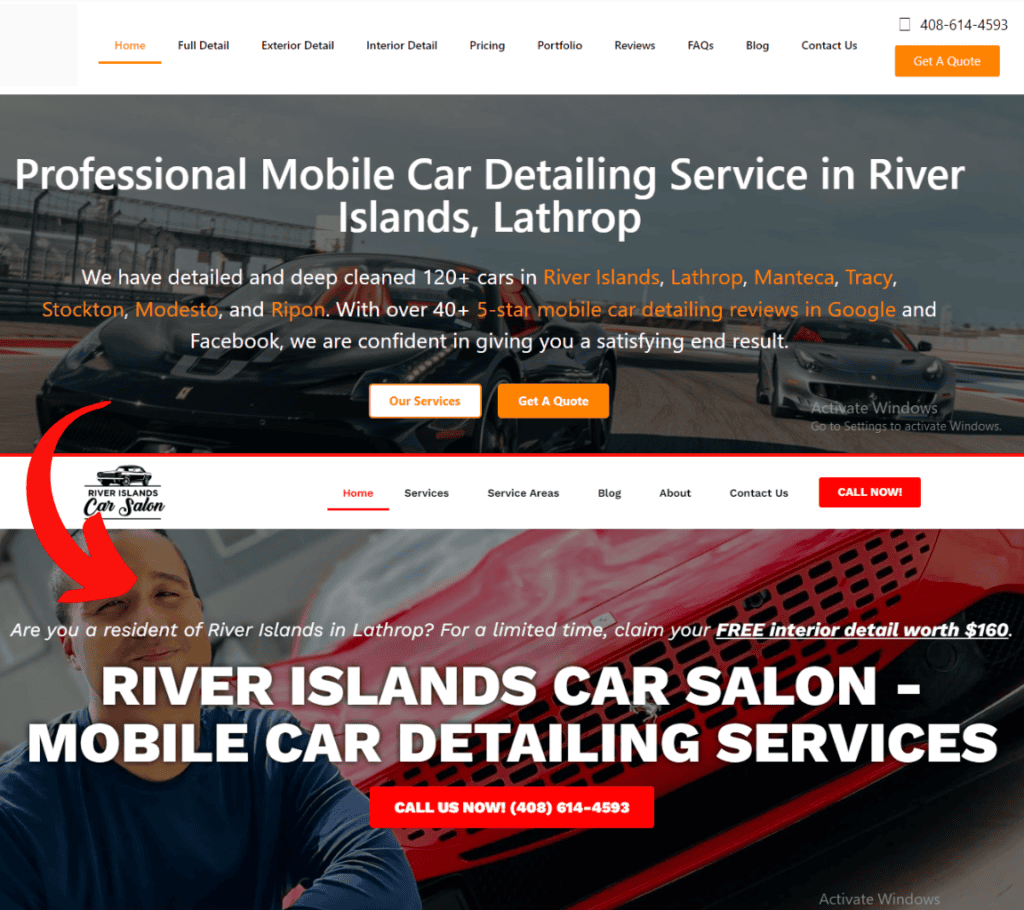
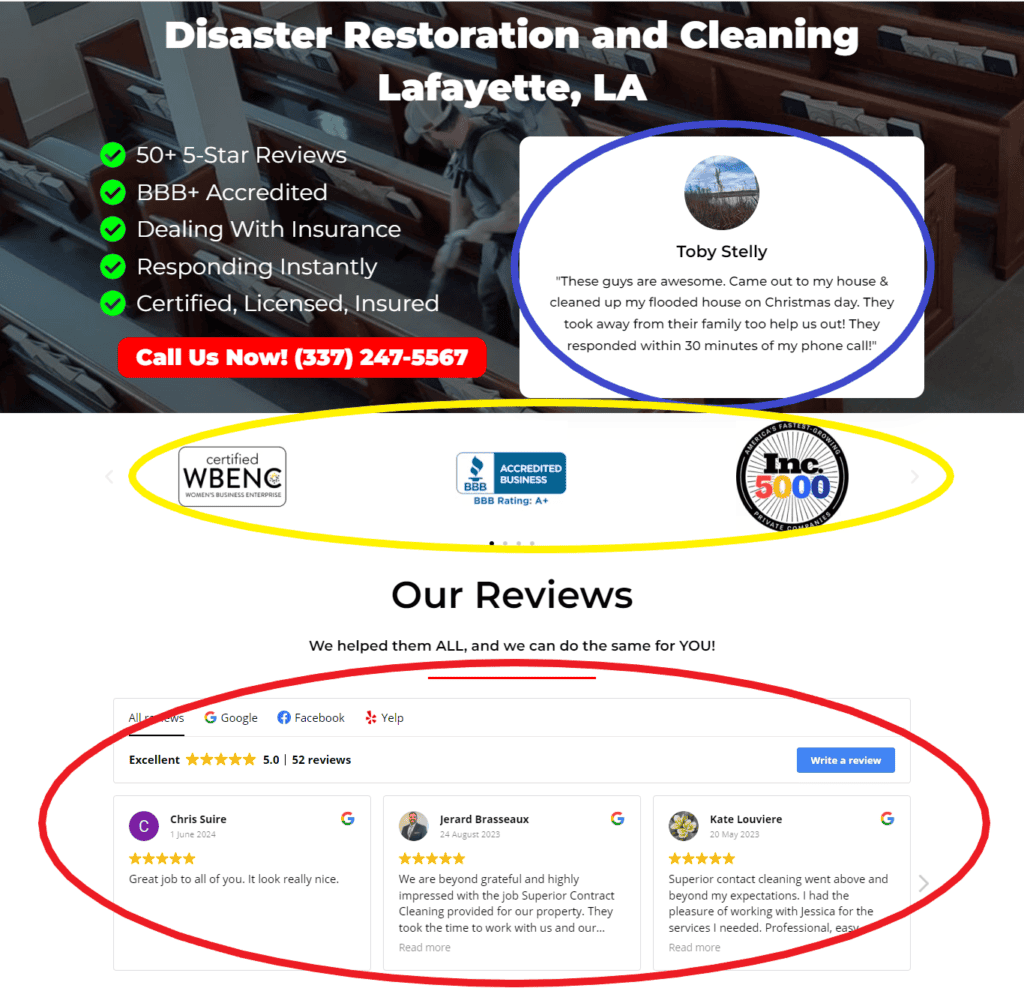
Wrapping It Up
And that’s it! Seeing some results but wondering how long it will take for leads to start coming in?
Read our guide on how long does SEO take.
Also, check out our other helpful SEO guides:
- How to optimize a Google Business Profile
- How to build backlinks to a local website
- Is SEO a one-time thing
Good luck and happy SEO-ing!

Bogdan is a local SEO expert with over 3 years of experience helping businesses grow using Google. When he is not helping businesses grow, he works on his own SEO projects, works out, takes long walks, and watches Suits, which is completely ironic given how rarely he dresses up in a suit himself.
